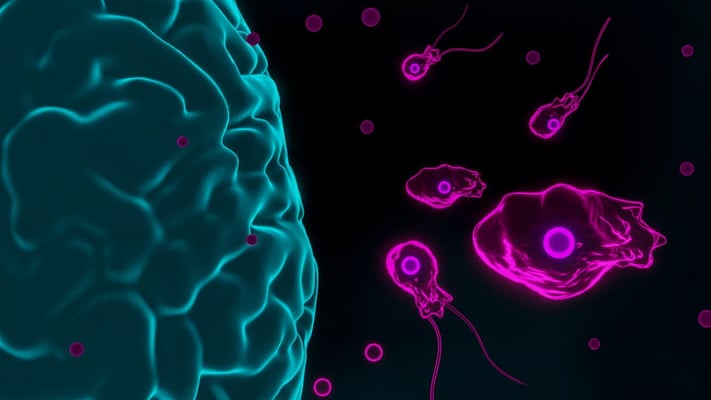Kerala on Alert as Brain-Eating Amoeba Claims 19 Lives

Kerala health authorities are on high alert after the state reported a deadly outbreak of primary amoebic meningoencephalitis (PAM), a rare but almost always fatal brain infection caused by the so-called “brain-eating amoeba.” According to Health Minister Veena George, the state has recorded 69 cases this year, with at least 19 deaths.
The infection, caused by Naegleria fowleri, typically spreads when contaminated water enters the body through the nose, allowing the amoeba to travel to the brain. It destroys brain tissue, leading to swelling and, in most cases, death. The disease progresses rapidly, with symptoms like fever, vomiting, seizures, and hallucinations.
Recent cases have raised alarm in Kerala. In August, the amoeba was detected in well water at the residence of a nine-year-old girl who succumbed to the infection in a northern district. In July, a 14-year-old boy undergoing treatment for amoebic meningoencephalitis died at a private hospital, marking the third case within weeks.
Health officials have urged residents to exercise extreme caution while using untreated water sources, especially for bathing and swimming. The state has also increased surveillance and water testing in affected areas.
Minister George stressed the importance of early diagnosis and preventive measures, adding that awareness campaigns are being intensified to inform the public about the risks. While PAM remains rare, its high fatality rate makes vigilance critical.
— NDTV
Kerala health authorities are on high alert after the state reported a deadly outbreak of primary amoebic meningoencephalitis (PAM), a rare but almost always fatal brain infection caused by the so-called “brain-eating amoeba.” According to Health Minister Veena George, the state has recorded 69...
Kerala health authorities are on high alert after the state reported a deadly outbreak of primary amoebic meningoencephalitis (PAM), a rare but almost always fatal brain infection caused by the so-called “brain-eating amoeba.” According to Health Minister Veena George, the state has recorded 69 cases this year, with at least 19 deaths.
The infection, caused by Naegleria fowleri, typically spreads when contaminated water enters the body through the nose, allowing the amoeba to travel to the brain. It destroys brain tissue, leading to swelling and, in most cases, death. The disease progresses rapidly, with symptoms like fever, vomiting, seizures, and hallucinations.
Recent cases have raised alarm in Kerala. In August, the amoeba was detected in well water at the residence of a nine-year-old girl who succumbed to the infection in a northern district. In July, a 14-year-old boy undergoing treatment for amoebic meningoencephalitis died at a private hospital, marking the third case within weeks.
Health officials have urged residents to exercise extreme caution while using untreated water sources, especially for bathing and swimming. The state has also increased surveillance and water testing in affected areas.
Minister George stressed the importance of early diagnosis and preventive measures, adding that awareness campaigns are being intensified to inform the public about the risks. While PAM remains rare, its high fatality rate makes vigilance critical.
— NDTV











Leave a Comment